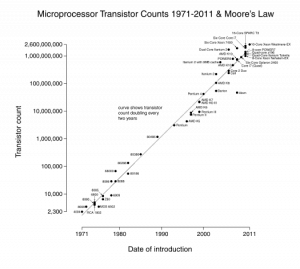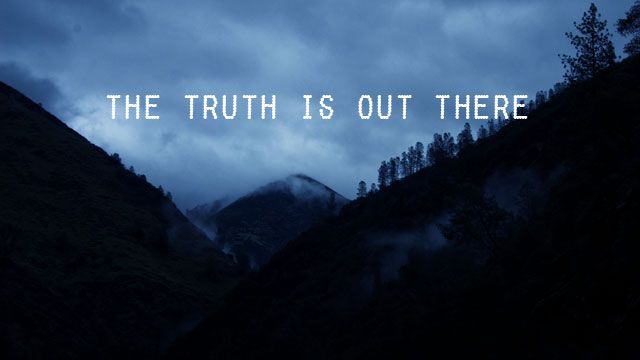Happy 25th anniversary, World Wide Web
by John Seiler | March 13, 2014 10:27 am
 [1]The Internet was invented in California in 1969 as a government project[2]. But the critical technology, the World Wide Web, was invented in Switzerland 25 years ago this week by one man, Tim Berners-Lee. He created the universal Hypertext Markup Language, hence the “http://” at the beginning of Internet addresses. He explained his invention in 1990[3]:
[1]The Internet was invented in California in 1969 as a government project[2]. But the critical technology, the World Wide Web, was invented in Switzerland 25 years ago this week by one man, Tim Berners-Lee. He created the universal Hypertext Markup Language, hence the “http://” at the beginning of Internet addresses. He explained his invention in 1990[3]:
HyperText is a way to link and access information of various kinds as a web of nodes in which the user can browse at will.
It provides a single user-interface to large classes of information (reports, notes, data-bases, computer documentation and on-line help).
We propose a simple scheme incorporating servers already available at CERN…
A program which provides access to the hypertext world we call a browser…
It would be inappropriate for us (rather than those responsible) to suggest specific areas, but experiment online help, accelerator online help, assistance for computer center operators, and the dissemination of information by central services such as the user office and CN [Computing & Networks] and ECP [Electronics & Computing for Physics] divisions are obvious candidates.
That seems pretty mundane today. But it revolutionized the way almost everybody lives, works and thinks.
A key aspect of the Web was decentralization. That meant escaping control by any one entity, including any government. Of course, some parts of the Net have become compartmentalized, such as Facebook. They own all the information you put on there, not you. But you don’t have to join Facebook. I know many people who use the Internet and have nothing to do with Facebook.
No gatekeepers
What the WWW critically did was to remove the gatekeepers of information. In 1989 in America, we still were dependent for information on five TV networks: ABC, CBS, NBC, PBS and CNN; on a handful of news sources, including AP, the New York Times, the Wall Street Journal, the Washington Post, and the Los Angeles Times, which formed the opinions also of local newspapers; on the Time, Newsweek and U.S. News & World Report weekly news magazines; and on a couple of opinion magazines, in particular the Nation and the New Republic for liberals, and National Review for conservatives.
Books were what was in your local library or book store.
Lee’s Web shattered all that. Now, with a few touches of a keyboard, you can find almost anything you want. Granted, there are bad things out there, too: neo-Nazi sites, neo-communist sites, pornography, etc. But the good far outweighs the bad.
The main thing is that now you easily can get both sides of the story — and make up your own mind.
Such sites as Project Gutenberg [4]include millions of free ebooks that, in 1989, would have meant scouring university libraries around the world. And Unz.org[5], from entrepreneur Ron Unz, includes hundreds of magazines. Here is H.L. Mencken’s The American Mercury[6], which the old curmudgeon founded and edited from 1924 to 1934.
Then there are the free education sites, such as the remarkable Khan Academy[7], created by entrepreneur Salman Khan. It’s mission is to provide “a free, world-class education for anyone, anywhere.” This and similar sites will make most, or all, government K-12 and university education obsolete. Why go $100,000 in debt for a pointless college degree when you can learn everything free online, from the world’s best teachers?
Moore’s Law
And this is just the beginning. Moore’s Law[8] stipulates that computing power doubles (at the same cost) every two years — and some scientists calculate it’s faster. We can’t predict what will come next any more than people just a decade ago could predict Facebook, Twitter, Pinterest, etc.
The dark side, as we have learned the past year after the Edward Snowden revelations, is that the government spies on everything we do. As I noted yesterday[9], even Sen. Dianne Feinstein, long a defender of the snooping, now is upset because the CIA has been spying on Congress itself, an obvious constitutional and moral violation.
But the government now collects such vast amounts of data that it can’t possibly keep tabs on everything and everybody. It’s like finding a needle in a haystack the size of the Milky Way Galaxy. The government can, as the CIA snooping on Congress shows, intimidate some highly visible people. But for most of us, it can’t possibly perform a gatekeeper role the way the old Main Stream Media used to back in 1989.
The Truth Is Out There — and it’s never going to be controlled again.
 [10]
[10]
- [Image]: http://calwatchdog.com/wp-content/uploads/2014/03/Moores-Law.png
- in 1969 as a government project: http://en.wikipedia.org/wiki/History_of_the_Internet#ARPANET
- explained his invention in 1990: http://www.netvalley.com/cgi-bin/intval/net_history.pl?chapter=4
- Project Gutenberg : http://www.gutenberg.org/
- Unz.org: http://unz.org/
- The American Mercury: http://www.unz.org/Pub/AmMercury
- Khan Academy: http://www.khanacademy.org/
- Moore’s Law: http://en.wikipedia.org/wiki/Moore's_law
- As I noted yesterday: http://calwatchdog.com/2014/03/12/sen-feinstein-upset-over-cia-searching-congressional-computers/
- [Image]: http://calwatchdog.com/wp-content/uploads/2014/03/truth-is-out-there.jpg
Source URL: https://calwatchdog.com/2014/03/13/happy-25th-anniversary-world-wide-web/